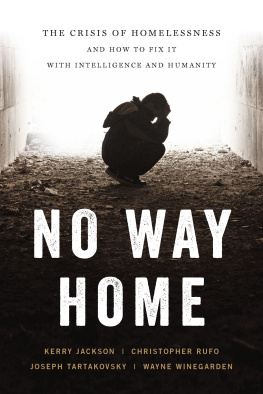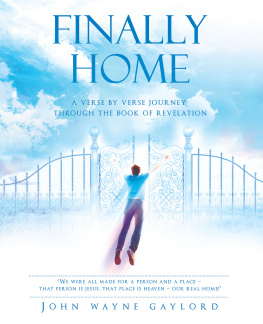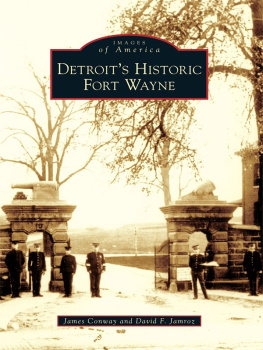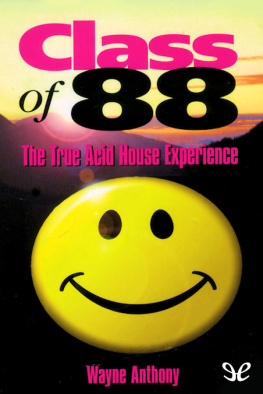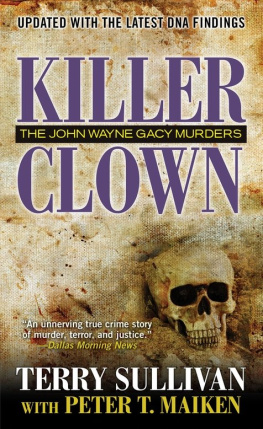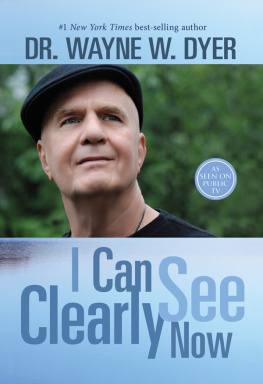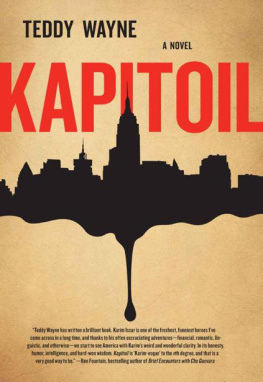Wayne Winegarden - No Way Home
Here you can read online Wayne Winegarden - No Way Home full text of the book (entire story) in english for free. Download pdf and epub, get meaning, cover and reviews about this ebook. year: 2020, publisher: Encounter Books, genre: Politics. Description of the work, (preface) as well as reviews are available. Best literature library LitArk.com created for fans of good reading and offers a wide selection of genres:
Romance novel
Science fiction
Adventure
Detective
Science
History
Home and family
Prose
Art
Politics
Computer
Non-fiction
Religion
Business
Children
Humor
Choose a favorite category and find really read worthwhile books. Enjoy immersion in the world of imagination, feel the emotions of the characters or learn something new for yourself, make an fascinating discovery.
- Book:No Way Home
- Author:
- Publisher:Encounter Books
- Genre:
- Year:2020
- Rating:5 / 5
- Favourites:Add to favourites
- Your mark:
- 100
- 1
- 2
- 3
- 4
- 5
No Way Home: summary, description and annotation
We offer to read an annotation, description, summary or preface (depends on what the author of the book "No Way Home" wrote himself). If you haven't found the necessary information about the book — write in the comments, we will try to find it.
No Way Home — read online for free the complete book (whole text) full work
Below is the text of the book, divided by pages. System saving the place of the last page read, allows you to conveniently read the book "No Way Home" online for free, without having to search again every time where you left off. Put a bookmark, and you can go to the page where you finished reading at any time.
Font size:
Interval:
Bookmark:

NO WAY HOME
No Way Home
The Crisis of Homelessness and How to Fix It with Intelligence and Humanity
KERRY JACKSON
CHRISTOPHER F. RUFO
JOSEPH TARTAKOVSKY
WAYNE WINEGARDEN

NEW YORK LONDON
Contents
by Stephen Moore
PART I: LIFE ON THE STREETS
Documenting Californias Growing Homeless Crisis
Chapter 1. Postcards from the Epicenter
Just How Bad Is Homelessness in California?
KERRY JACKSON
Chapter 2. Squandered Opportunities
How Homelessness Hurts the Economy
WAYNE WINEGARDEN
Chapter 3. From Vagrancy to Homeless Rights
A Brief History of the Law of Homelessness
JOSEPH TARTAKOVSKY
PART II: HOW CALIFORNIA BECAME FIRST IN HOMELESSNESS
Decades of Bad Policy and Legal Decisions
Chapter 4. Incentivizing Homelessness
How Local and State Policies Encourage Homelessness
KERRY JACKSON
Chapter 5. Homeless, Addicted, and Insane
The Perilous Trifecta Puts San Franciscos Policy Regime to the Test
CHRISTOPHER F. RUFO
Chapter 6. Priced Out of Shelter and onto the Streets
How Californias Housing Crisis Has Pushed Thousands into Homelessness and Has Many More on the Brink
WAYNE WINEGARDEN
Chapter 7. Judicial Interventionism
How Court Rulings Change How Cities Enforce Quality of Life Laws
JOSEPH TARTAKOVSKY
Chapter 8. The Limits of Housing First
Los Angeles Makes a $1.2 Billion Bet on a Solution to Homelessness That Is Bound to Fail
CHRISTOPHER F. RUFO
Chapter 9. Lawsuits Without End
How Courtroom Entanglement Limits Political Solutions
JOSEPH TARTAKOVSKY
PART III: WHAT CAN BE DONE TO SOLVE CALIFORNIAS HOMELESS PROBLEM
Innovative Ways to Reduce Homelessness Despite Budget and Legal Constraints
Chapter 10. Taking Action
Lessons Learned from Local Changemakers
KERRY JACKSON AND WAYNE WINEGARDEN
Chapter 11. Smarter Laws, Smarter Enforcement
Legal and Policy Reforms to Relieve Homelessness with Humanity and Fairness
JOSEPH TARTAKOVSKY
Chapter 12. Compassionate Enforcement
Balancing Public Services and Public Order
CHRISTOPHER F. RUFO
Appendix. Data Snapshot
Californias Growing Homeless Problem Over the Years by City
STEPHEN MOORE
C ALIFORNIA HAS A staggering homeless crisis that isnt being sufficiently addressed by mayors or the politicians in Sacramento. In too many instances, liberal policy designs are making the crisis worse. This is harming the poor and making cities like San Francisco increasingly unlivable.
Solutions that have worked in the past, as well as ideas that have succeeded elsewhere, are needed to help the state cope with, and ultimately improve, the declining conditions. Its with these objectives in mind that the Pacific Research Institute had an on-the-ground journey of discovery that ultimately shaped this book. The PRI team visited shelters, listened to those who work with the homeless every day, researched problems and solutions outside the state, and studied the methods of successful private organizations that are improving lives. PRI wanted to create a unique guide that state and local policymakers, social service groups, academics, and grassroots organizations could draw from, and it did just that.
PRI has assembled a team of seasoned professionals, each of whom drew on his area of expertise to contribute differing perspectives.
Christopher Rufo is a filmmaker, writer, and policy researcher. To better understand the world of homelessness, Rufo walked the worst streets on the West Coast, even spending a week on Los Angeless Skid Row. Hes interviewed those who had been on the streets and recovered, as well as the indirect victims of homelessness residents whose lives have been changed by the worsening homelessness environments around them. His on-the-ground observations, not from a statistical point of view but from a human point of view, were critical to the project.
Joseph Tartakovsky, a former Gibson, Dunn & Crutcher litigator and author of The Lives of the Constitution: Ten Exceptional Minds That Shaped Americas Supreme Law, provided a historical framework for No Way Home that puts the phenomenon of homelessness into perspective. Tartakovskys direct connection to homelessness today was sharpened by his participation in the Martin v. City of Boise case, in which two municipal ordinances that prohibited sleeping and camping in public spaces were challenged in court. The plaintiffs win means that no city can arrest or ticket someone for camping in public unless that person has a publicly provided shelter available to them. In the course of litigating the case, Tartakovsky contacted dozens of cities, giving him a panoramic perspective and introducing him to an array of policies that otherwise might have remained hidden.
PRI senior fellow Wayne Winegarden brought his expertise as an economist to explore the effects of Californias housing troubles on homelessness. Through his intensive background as a business economist, Winegarden tells the story of how public policy has exacerbated Californias homelessness issues, from the steep cost of housing thats priced people out of homes to the unaffordable cost of living.
Kerry Jackson, an Investors Business Daily editorial writer for 16 years and now PRIS fellow for California studies, has been researching and writing about homelessness and poverty in California for years. With this knowledge in hand, he was able to clearly outline the current state of homelessness.
Homelessness has become so disturbing that 95 percent of voters told the Los Angeles Times and the Los Angeles Business Council Institute that it is a serious or very serious problem, and it is in fact the top concern, beating out traffic and housing affordability. Across the state, likely voters also see homelessness as the Golden States biggest problem, surpassing the economy and housing. Californians desperately want policymakers to make a difference.
But the solutions from the past have proven to be non-solutions that in many cases have made the homeless crisis worse, as it has gone from a mild nuisance (which many saw as someone elses problem) to one of the most pressing issues in the state. Now other cities outside of California, including Washington, D.C., Chicago, and Baltimore, are seeing a renewal of their homeless crisis.
The good news is the problem of homelessness can and should be solved. This book provides the roadmap to how to provide true and lasting help to the millions of homeless in America.
C ALIFORNIAS HOMELESS CRISIS is a tragedy. It is a tragedy for the homeless who bear the hardships and risks of living on the streets. It is a tragedy for the residents of California who are becoming accustomed to walking over human feces and sidestepping used needles on the sidewalk. It is a public health tragedy that enables medieval diseases such as typhus to incubate. And it is a tragedy for Californias already tapped-out taxpayers who must pay the financial costs of it all.
The purpose of this book is to examine the causes of Californias homelessness crisis, identify the missteps that worsen the problem, and offer policies to address the problem in the near and long term. The four coauthors at times come to different conclusions or suggest different policy emphases. Each authors perspective in this anthology is his own. Our understandings have been in part shaped by our backgrounds: Kerry Jackson is an independent journalist, opinion writer, and political analyst. He is currently a fellow with the Pacific Research Institutes Center for California Reform. Dr. Wayne Winegarden is a policy economist whose areas of study include the economic impacts from regulatory policies with an emphasis on their consequences on affordability and regressivity. Joseph Tartakovsky is a practicing attorney who has litigated and lectured on issues of homelessness and constitutional law and advised policymakers in California, Nevada, Oregon, and Washington on framing defensible policies and laws. Christopher F. Rufo is an activist, filmmaker, and policy analyst who covers poverty, homelessness, addiction, crime, and other afflictions. We felt that a joint approach would illuminate this thorny problem from multiple angles. Yet we all agree that ameliorating Californias homelessness crisis is a policy priority of supreme urgency, for reasons of public order and safety, humanitarianism, and economic health.
Next pageFont size:
Interval:
Bookmark:
Similar books «No Way Home»
Look at similar books to No Way Home. We have selected literature similar in name and meaning in the hope of providing readers with more options to find new, interesting, not yet read works.
Discussion, reviews of the book No Way Home and just readers' own opinions. Leave your comments, write what you think about the work, its meaning or the main characters. Specify what exactly you liked and what you didn't like, and why you think so.

